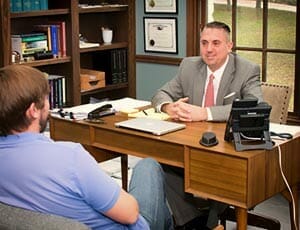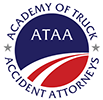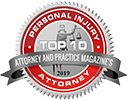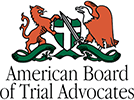Failure-to-Yield Accidents
Stop signs, traffic signals, and yield signs help control the flow of traffic and prevent crashes, yet the fact that many crashes occur at intersections indicates that drivers often fail to yield as required.
According to the National Highway Transportation Safety Administration, “recognition errors,” such as inattention, internal and external distractions, and inadequate surveillance, account for more than half of all intersection accidents. Distracted drivers may not even notice that a traffic light has turned red before they enter the intersection.
Entering the Roadway: How Crashes Occur
When signs or signals are not present, the basic right-of-way rules dictate that a driver on a road (or a driveway) that’s ending must yield to the traffic on the road they’re trying to enter. So, for example, when pulling out of a parking lot onto a main road, drivers on the main road have the right of way. But due to inattention, or a failure to adequately judge the speed of oncoming traffic, many drivers cause failure-to-yield crashes when they pull into traffic.
This type of crash often involves motorcycles, as people driving cars tend to underestimate the speed of approaching motorcycles. When cars pull into the path of a motorcycle, the motorcyclist may be ejected by the impact and thrown forward onto the road.
Failure to Yield to Pedestrians
When pedestrians are using a marked or unmarked crosswalk, motorists are required to yield when pedestrians are on the same half of the road as their car, or when they’re approaching that half of the road and are close enough to be in danger. Drivers must also yield to any pedestrian when making a right turn, but drivers turning right on a red light who are looking left to check for oncoming cars often fail to look right again before executing the turn.
Some recent fatal pedestrian accidents in Austin occurred because a driver failed to yield. In 2016, a driver turning left struck and killed a man in a crosswalk on South Congress Avenue. In 2017, a woman crossing the street in an Austin crosswalk collapsed. A driver stopped to help her and turned on his hazard lights to warn other drivers, but another car raced through the crosswalk, running over the woman and killing her.
Driver Behavior
Every driver makes some type of judgment error at some point in their life. Usually, a minor mistake won’t cause a crash. Running a stop sign or red light, however, raises the risk of a crash exponentially.
Aggressive driving is often a factor in failure-to-yield crashes. For example, at four-way stops, impatient and aggressive drivers often stop and then immediately proceed through, even when other cars have the right of way.
On highways, drivers entering traffic from an on-ramp are required to yield, or to defer to faster vehicles, but aggressive drivers sometimes try to outrun an approaching car and get in front of it, even as the merge lane is ending. This dangerous driving behavior can cause a serious accident.
People who are in a hurry may think it’s OK to roll through a stop sign or accelerate through a yellow light – but that’s a form of aggressive driving. Drivers who are in an intersection trying to make a left turn may legally proceed when the light turns yellow. If an approaching driver tries to race through the yellow light, they are likely to strike left-turning vehicles.
Help for Injured People
Careless, negligent, and inattentive drivers cause numerous crashes that severely injure people. Unless found to be intoxicated, those drivers rarely have to worry about any serious repercussions. For the victims of these crashes, however, life may change completely. They may be left with a permanent disability and mountains of medical bills.
Fortunately, crash victims can pursue justice through our legal system. When you hire a Austin personal injury attorney to handle your case, you may be able to get compensation to cover all of your costs and live comfortably. At the EVANS / DESHAZO / REILLEY Law Firm, we handle personal injury cases on contingency, meaning you pay nothing up-front for representation. Our fee comes from any settlement you may receive. So don’t wait to ask for help. Contact us today to request your free case consultation.

 Serving Clients Throughout Texas
Serving Clients Throughout Texas


 Chip Evans is a partner at Evans & Herlihy. Chip brings to the firm more than 20 years of experience as a trial lawyer representing Plaintiffs. It is the desire to help individuals, not corporations, that attracts Chip to this side of the docket. [
Chip Evans is a partner at Evans & Herlihy. Chip brings to the firm more than 20 years of experience as a trial lawyer representing Plaintiffs. It is the desire to help individuals, not corporations, that attracts Chip to this side of the docket. [ 







